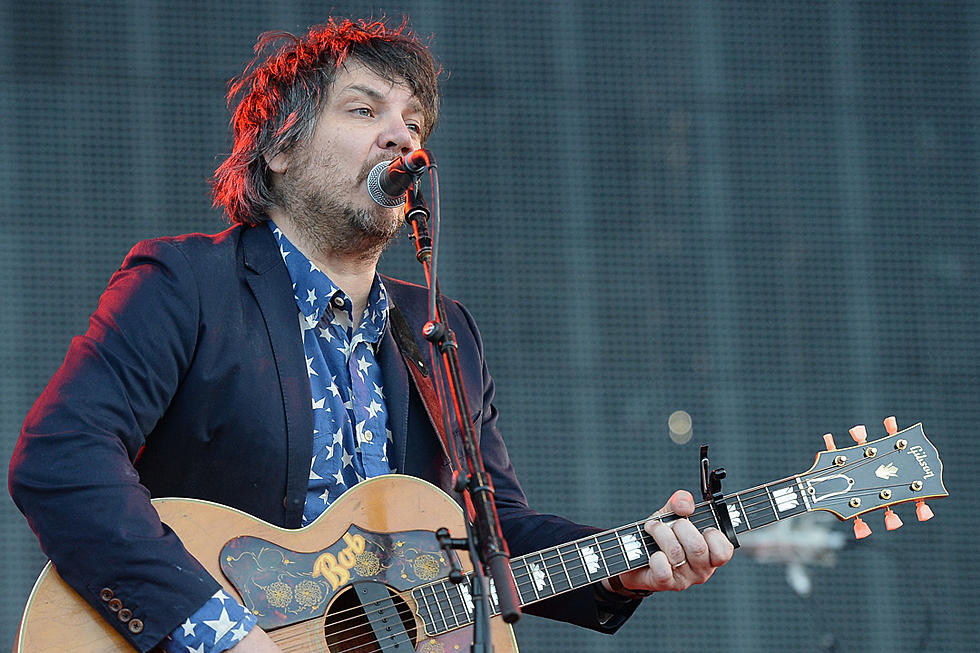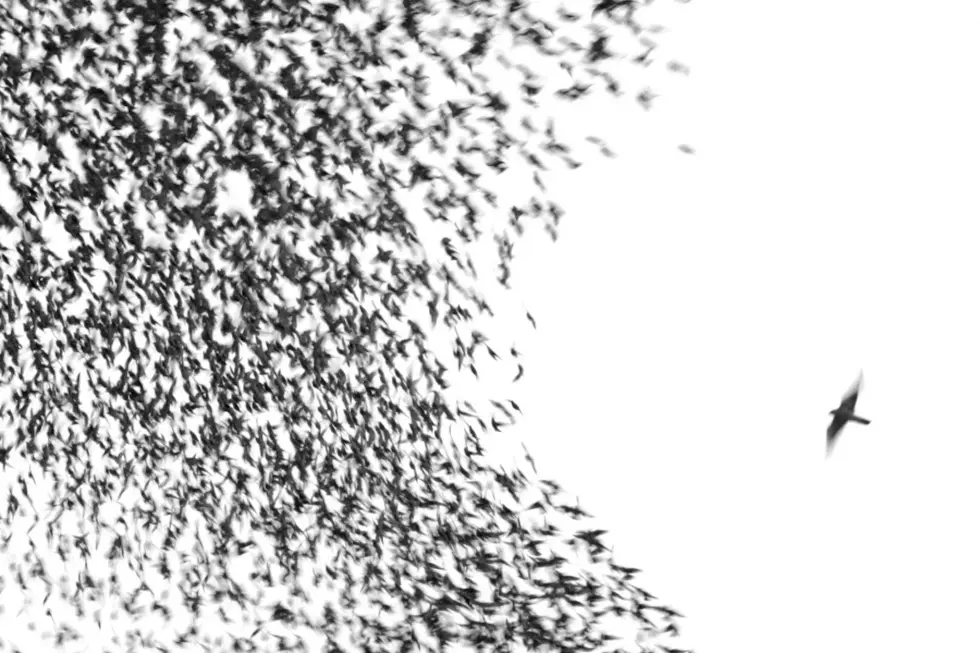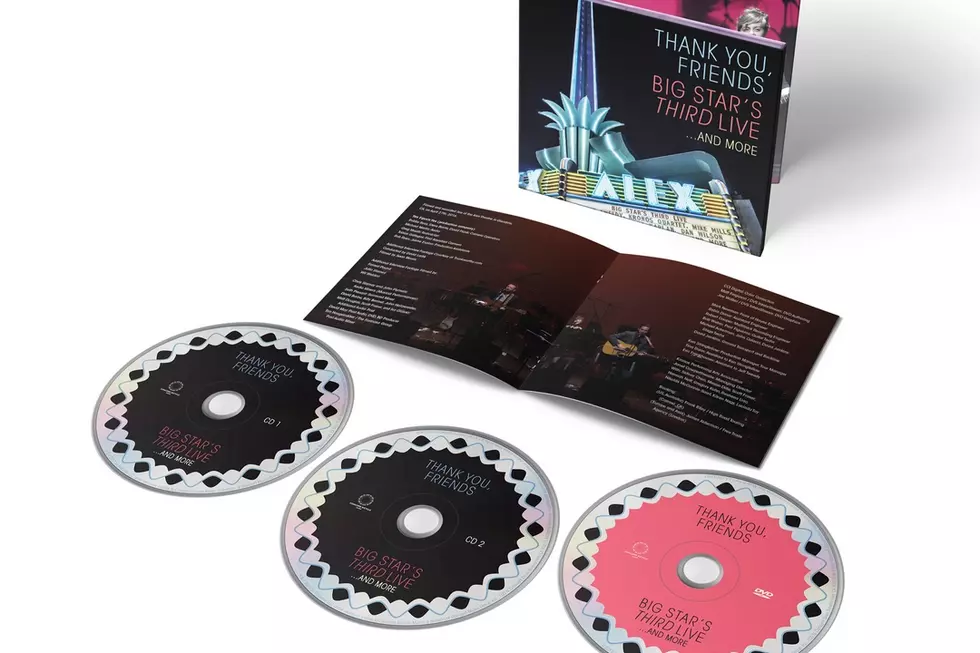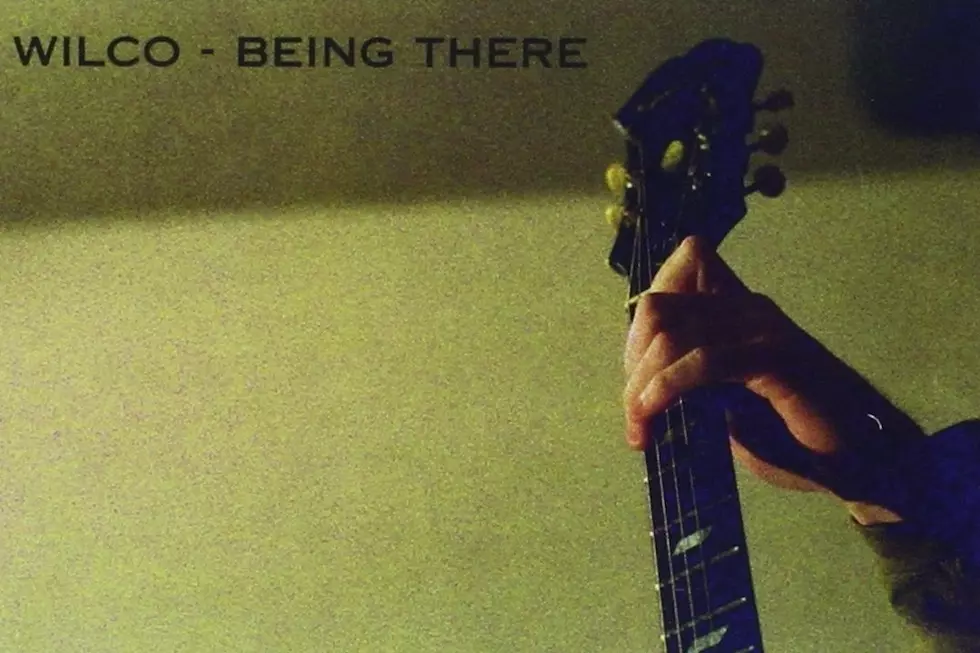Wilco: Four Concerts, One Crazy Year
Between 2000 and 2001, Wilco mutated before my eyes. I saw them play four concerts in the band’s hometown of Chicago in the space of a year. Only these weren’t just any concerts. And this wasn’t just any year.
The shows surrounded the build-it-up-to-tear-it-down recording sessions that would result in Wilco’s greatest album, Yankee Hotel Foxtrot. It’s also Wilco’s most notorious album because it was rejected by the group’s record label (Reprise), who then released the band and allowed Jeff Tweedy and co. to search for a new home.
Now, I don’t know the band personally and I didn’t witness any of the behind-the-scenes machinations involved in Wilco’s crazy year (that is, until I saw Sam Jones’s excellent documentary, I Am Trying to Break Your Heart). I experienced this tumultuous time in the band’s history as a fan. What I saw on stage told me plenty about what was going on.
For example, the four concerts I attended featured four different Wilco lineups. While driving themselves to the creative breaking point only to be dropped by their label, the folks who were in Wilco shifted a bit. Between Thanksgiving of one year and the next, they shed two members while gaining another. I was there to see the last Wilco shows with drummer Ken Coomer and multi-instrumentalist Jay Bennett, as well as one of the first with new drummer Glenn Kotche.
Coomer’s final show as a Wilco member happened on Nov. 22, 2000 at the Riviera Theatre. Wilco’s “homecoming” Thanksgiving shows at the Riv were becoming a tradition, not just for the band, but for my group of friends (we were always home from college for the holiday weekend). These concerts were usually a blow-out, with a road-weary band leaving every ounce of sweat on the stage, and sometimes ending with a raucous cover of “Immigrant Song,” led by roadie Jonathan Parker.
My memory of that particular show is that Wilco seemed a little more tired than usual; it was the last gig of a long tour to promote the second Mermaid Avenue record. But I did get my first tastes of Yankee Hotel Foxtrot when the band played the sparse ballad “Reservations” and a rocked-up version of “Kamera” (that was almost unrecognizable from the final recorded version). There was no pomp and circumstance for Coomer – perhaps because no one knew he’d be asked to leave Wilco so soon – but no obvious infighting either, because Wilco’s just not that type of band.
Watch Wilco Play an Alternate Version of "Kamera"
A month or two later, I found out – as many fans did – via a news release that Coomer had been replaced by Kotche, a drummer in a Tweedy side project called Loose Fur. Coomer had been with Tweedy since Uncle Tupelo, but Tweedy thought Kotche would be a better fit for the new music Wilco was making in the band’s Chicago loft. No disrespect to Coomer, or drummers in general, but this wasn’t earth-shattering news, because Jeff and Jay were still there. I was excited to see and hear Wilco with their new member.
I would get that opportunity earlier than I expected on May 4, 2001, when I attended the second of two Tweedy solo shows at the Abbey Pub. In between sessions for the new album, Tweedy put together a solo acoustic tour, on which he played old material alongside folky versions of the YHF stuff. But for his Chicago concerts, towards the end of the set Tweedy welcomed three of the Wilco guys (Bennett, Kotche and bassist John Stirratt) to try out fuller arrangements of songs such as “I’m the Man Who Loves You” and “War on War.”
Kotche endeared himself immediately. His drumming seemed sharper, livelier. He brought a propulsive bounce to “War on War” and helped open up “Kamera” in its newly restrained incarnation. Plus, he could still rock out with the boys on old chestnuts like “I Got You (At the End of the Century).” The new guy sounded great; so did the new songs, which seemed to magnify the despair in Jeff’s lyrics rather than mask it (a la Summerteeth). Tweedy told the crowd we could look forward to getting the new record very soon. Little did he know how long it would take.
Before Wilco delivered the finished Yankee Hotel Foxtrot to an unenthusiastic Reprise, the band was booked to play the annual, free Fourth of July concert in Grant Park (the same place where Lollapalooza now reigns every summer) as part of the Taste of Chicago Festival. It wasn't the first time Wilco appeared at the event at the Petrillo Music Shell. Five years earlier, the boys had opened for Paul Westerberg and Del Amitri while playing a ton of tracks from the forthcoming Being There. This time they’d be headlining with the idea that they’d be promoting, and playing heavily from, Yankee Hotel Foxtrot.
Well, only the second of those things happened, due to some fractious dealings with Reprise. In an achievement of artistic defiance, Wilco’s five members (including multi-instrumentalist Leroy Bach) played the new songs anyway. On a sunny holiday, before a massive crowd, the band opened with the hushed, slow-build of “I Am Trying to Break Your Heart.” Not the obvious choice, but an incredible one. It was a massive risk for Wilco to fill almost a third of its set with tunes that practically no one in the crowd knew. But it was also electrifying to watch this unfold and to hear these melancholy and captivating sounds. It’s one of the best shows I’ve ever seen.
Watch Wilco Play "I Am Trying to Break Your Heart"
It would also be the final Wilco show with Jay Bennett. A month later, it was announced that they had parted company. Jay had been brought on post-A.M. to play lead guitar on tour. He gradually earned a much more significant role in Wilco, bringing a greater sonic landscape to the band’s albums and concerts with his keyboard playing and engineering expertise as they slowly moved away from the alt-country of A.M. For a time, Tweedy and Bennett became the two-headed creative force in the group. As a fan, I felt the culmination of Bennett’s work in the band were the new songs and sounds that would appear on Yankee Hotel Foxtrot. Instead, it was the end. Maybe it was both.
Wilco had other big decisions to make at that time. The band was officially released from its Reprise contract and still had a completed album to shop to a new label. In the meantime, Wilco did something that would have seemed inconceivable (from a business and technological standpoint) just a few years prior: the band began streaming its new album, for free, on the internet.
It was another moment of artistic defiance. The Wilco guys put it out there, as if to say, “Yes, this is the record that was so horrible that Reprise refused to release it.” And it was baffling to the music press, Wilco fans and many others who gave Yankee Hotel Foxtrot a listen. Yes, this was a difficult album, but also one that had so much to reveal over multiple listens. If Radiohead’s Kid A could be released on a major label, why couldn’t this?
Wilco fought their way through internal and external frustrations and conflicts the only way that made sense. The band went back out on the road that fall, with one less member and a free web stream to promote. The trek included two Thanksgiving shows – at the Riviera, as always. With some reservations, but more curiosity, I planned to attend one of them and find out what a four-piece Wilco sounded like.
So, on Nov. 24, 2001, barely more than a year after I saw a very different Wilco give the first hints of Yankee Hotel Foxtrot, I watched this pared-down edition play most of the still-unreleased album’s songs. Although I missed Bennett, particularly on the bolder, older rockers, and it took a little time for this fan to acclimate, I had to admit that the new songs sounded better. What Tweedy said Wilco wanted to achieve in the recording of YHF, they had applied to performance. There were holes or spaces in the music. It was airy, yet substantial. There was room for your mind to bounce around inside, but enough for the rest of you to hang onto. I left the Riviera convinced that Wilco was as strong as ever.
Watch Wilco Play "War on War"
In the new year, Wilco signed with Nonesuch Records and Yankee Hotel Foxtrot finally came out in April 2002. Because of the changes that took place within the band, all contributors were credited under the heading “Wilco is/was:” in the liner notes. The album became (and remains) Wilco’s best-selling album, which felt something like vindication for fans who believed in the greatness of this music.
In the wake of YHF, Coomer drummed on other people’s records and worked as a producer. Bennett began making solo records and also did production work, before he died from an accidental overdose in 2009. Bach left Wilco in 2004, and they have since cemented the lineup as a six-piece with Tweedy, Stirratt, Kotche, guitarist Nels Cline, keyboardist Mikael Jorgensen and multi-instrumentalist Pat Sansone, giving them a degree of stability they had never previously enjoyed.
Wilco Albums Ranked In Order of Awesomeness
More From Diffuser.fm









